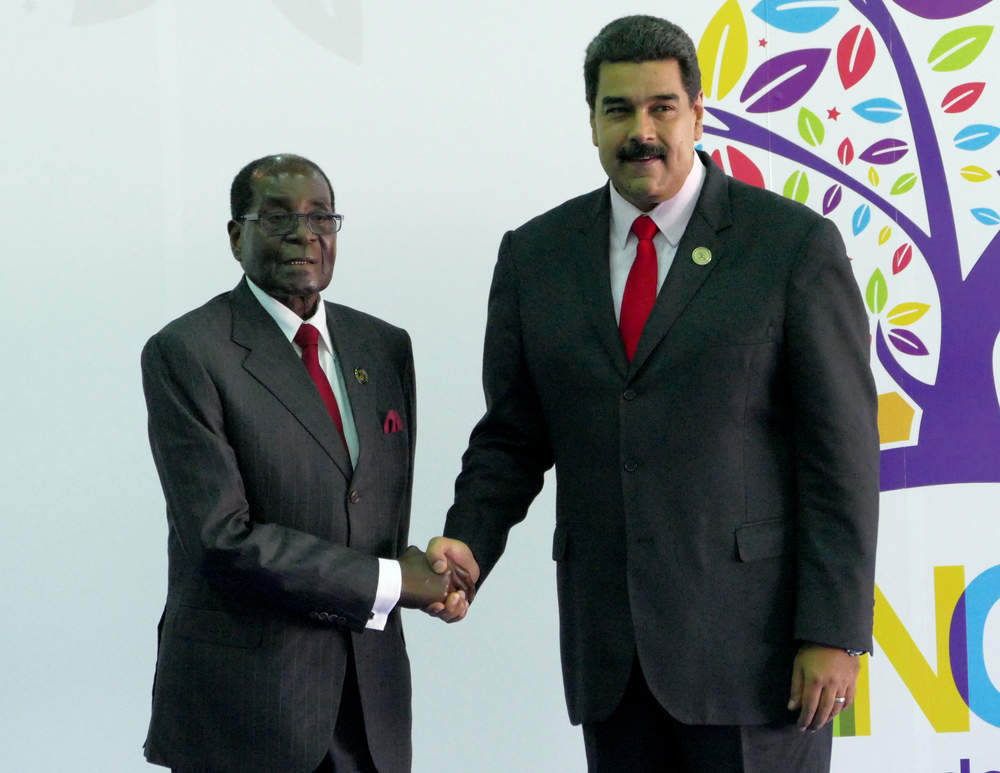
The US has already imposed sanctions on three global leaders — Kim Jong-un of North Korea, Robert Mugabe of Zimbabwe, and Bashar al Assad of Syria.
Previously sanctioned leaders who are now dead include Saddam Hussein of Iraq and Muammar Gaddafi of Libya.
Last month, amid rising violence, political chaos and an economic crisis in Venezuela, one more leader was added to the list — Nicolas Maduro.
US sanctions on heads of state can be crippling. The US freezes any property the individual owns in the US and prevents US citizens from doing business with them.
Kim Jong-un
In July 2016, the US sanctioned the North Korean leader for violations against his own people. Ten other top North Korean officials were also blacklisted.
“Under Kim Jong-un, North Korea continues to inflict intolerable cruelty and hardship on millions of its own people, including extrajudicial killings, forced labour, and torture,” said the Treasury statement issued at the time.
How well do you really know your competitors?
Access the most comprehensive Company Profiles on the market, powered by GlobalData. Save hours of research. Gain competitive edge.
 Company Profile – free sample
Company Profile – free sampleThank you!
Your download email will arrive shortly
Not ready to buy yet? Download a free sample
We are confident about the unique quality of our Company Profiles. However, we want you to make the most beneficial decision for your business, so we offer a free sample that you can download by submitting the below form
By GlobalData
A State Department report documenting abuses in North Korea, coinciding with the introduction of personal sanctions against Jong-un, estimated that North Korean prison camps hold between 80,000 and 120,000 inmates.
Prisoners are subject to torture, sexual assault and executions.
Robert Mugabe
Under George W. Bush, the US imposed sanctions on Zimbabwe’s president Robert Mugabe, the world’s oldest non-royal serving head of state, in 2003.
More than 250 Zimbabwean individuals and companies were also prevented from doing business with the US.
Former US president Barack Obama extended the sanctions in 2009.
“The crisis constituted by the actions and policies of certain members of the government of Zimbabwe and other persons to undermine Zimbabwe’s democratic processes or institutions has not been resolved,” Obama said in a statement at the time. “These actions and policies pose a continuing unusual and extraordinary threat to the foreign policy of the United States.”
Zimbabwe remains plagued by high unemployment, food shortages and a cholera epidemic.
Bashar al Assad
In May 2011, the US imposed sanctions on Syrian President Bashar al-Assad for his human rights abuses.
It marked the first time Assad was personally targeted by another country.
Six senior Syrian officials were also punished for their crimes against humanity.
The sanctions barred American individuals and companies from dealing with the officials, who included the vice president, the prime minister, the interior minister, the defence minister, the head of military intelligence and the director of the political security directorate.
Former president Barack Obama, who decided to impose the sanctions, did so because he wanted to “increase pressure on the government of Syria to end its use of violence and begin transitioning to a democratic system that ensures the universal rights of the Syrian people,” a US government official said at the time.
As many as 475,000 were killed between March 2011 and July 2017 in Syria’s ongoing bloody civil war, according to the Syrian Observatory for Human Rights.







